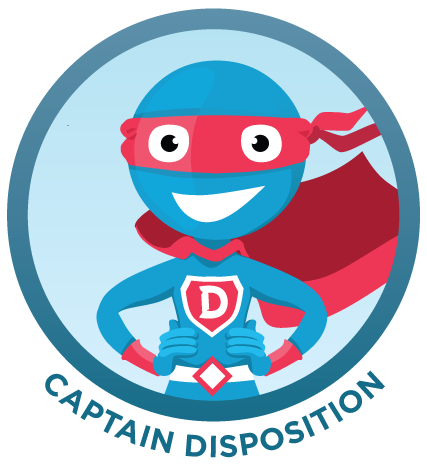Dispositions
“Thinking dispositions form the foundation for all learning and should underpin any educational program. They are critical to learning and to the transfer of learned material.”
“Dispositions describe a person’s inclination to use particular skills when faced with problems to solve, ideas to evaluate or decisions to make.”
Captain Disposition
Open-minded
The student is open to new and different ideas and considers the opinions of others.
Flexible
The student is able to look at problems from multiple perspectives and will change their plan when new problems arise.
Risk-taker
The student likes to try new ways of doing things and is not afraid of making mistakes.
Resourceful
The student finds inventive ways to overcome difficulties and will improvise when resources are limited.
Patient & Persistent
The student spends extra time developing their ideas and doesn't give up when faced with difficulties.
Ubiquitous learner
The student believes that thinking, learning and creating can take place anywhere, anyhow, anytime.
Reflective
The student likes to evaluate their own work and will think about the thinking processes they have used.
Feedback from teachers who have been teaching the Dispositions for one year:
“The common language of the seven dispositions is really powerful across the whole school. Kindergarten love Captain Disposition (although I was skeptical about the lycra at first!).”
“The acquisition of CCT dispositions is becoming more and more visible in all K-6 students and has positively impacted their approach to learning tasks.”
“It’s fantastic to hear the kids talk about how they are demonstrating a disposition or congratulate their peers for being like Captain Disposition.”
“They take ownership and are starting to use their mistakes as learning opportunities.”
“Students are becoming more open minded and adventurous in their learning and approach tasks with more flexibility. Students are developing patience and persistence with challenging tasks. I have noticed an increase in the ability to make connections during learning, and understand learning as a ubiquitous construct.”


